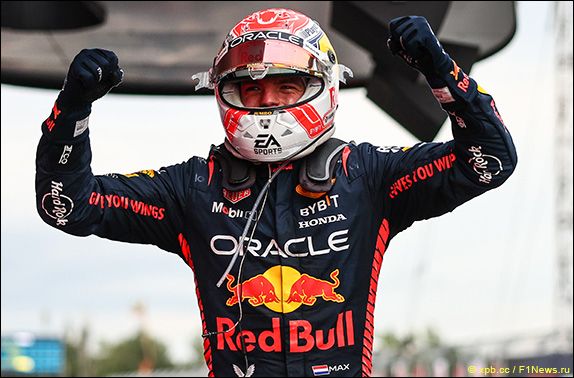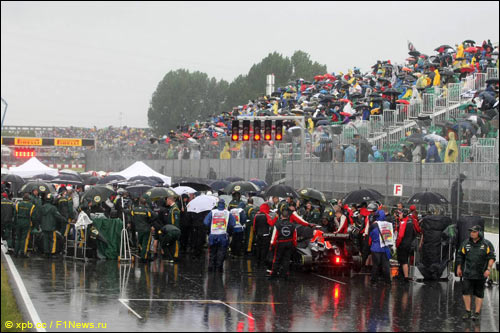Everyone loves the Canadian stage. There cannot be two opinions. Racers, fans, spectators. Montreal seems to come alive in the days of the Grand Prix, integrating the stage into itself, becoming part of the atmosphere and turning into one big, cozy circuit.
Under the current contract, the Gilles Villeneuve circuit is supposed to host the Grand Prix through 2029, but the races will take place in 2030 and 2031 instead of two years when the stage did not take place due to the Covid-19 pandemic.
Breaking up the European Grand Prix streak after the boring Barcelona and Monaco, the Canadian round introduces a welcome element of unpredictability.
It is a pity that in 2002 the “wall of champions” was moved a meter further – there were fewer unexpected accidents, and for this many strong racers left a “signature” on it. Kevin Magnussen was the last serious car crash there in 2019, let’s see how things go this weekend.
The surface of the Canadian circuit has always been uneven, but with the hard and low suspension of cars built to the 2022 regulations, drivers feel every bump. Even those who normally had no problems complained about the buildup last year. And if before the curbs were actively attacked, now they are trying to cope.
Races in Canada are also sometimes not very spectacular, but this is rather an exception to the rule and a consequence of the format, when, according to the results of qualifying, fast cars start before the slow ones. But there are always a lot of external factors this weekend.
A semi-stationary old-school track between barriers on an artificial island, unpredictable weather, unusual settings, terrible asphalt and woodchucks watching what happens – they try to resettle them in front of the stage, but some hide and stay. All this takes nothing away, but adds to the charm of the Canadian stage, adding to a puzzle that must be solved better than others in order to win, which is not always possible for the leaders.

After the Canadian stage, a series of seven European stages awaits us, which will ultimately decide the fate of the championship title, if nothing surprising happens. There is no doubt that he will be won ahead of schedule. There is only one question: when?
Everyone admits that it is not possible to catch up with Verstappen and Red Bull this season and they are gradually switching to 2024, which is quite logical. While Max will win, the teams will participate in the novelties of the European Grand Prix next season, while at the same time solving the current tournament problems.

In 2011, the Canadian race [подробное описание] lasted more than four hours. It had been raining since early Sunday morning, but under Charlie Whiting the race directors weren’t as careful in their decisions, allowing the riders to fight even in difficult conditions.
And the conditions were incredible! Rain showers of varying intensity alternated, track conditions were constantly changing, riders switched from rain tires to intermediate tires and then back to rain tires. The drainage system couldn’t handle it, the race was stopped with red flags to drain the water, then they restarted.
During the break, lightning struck one of the pillars next to the paddock – Nico Rosberg was giving a live interview on Sky Sport at the time – and was shocked.
The fate of the race was already decided in the twilight and on slicks, when Jenson Button, who had pitted six times and suffered a penalty pass in the pit lane, overtook Sebastian Vettel on the final lap.
According to the Moscow time, the race ended after one in the morning, and after five in the morning, after describing what we saw, we went home completely happy. This only happens at the Canadian Grand Prix.
Source: F1 News
I am Christopher Clyde, an experienced journalist and content writer with a passion for sports. I have been writing about Formula 1 news for the past five years and am currently employed as an author at athletistic.com, one of the top sports websites in the US.


